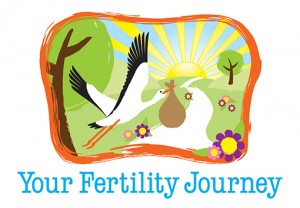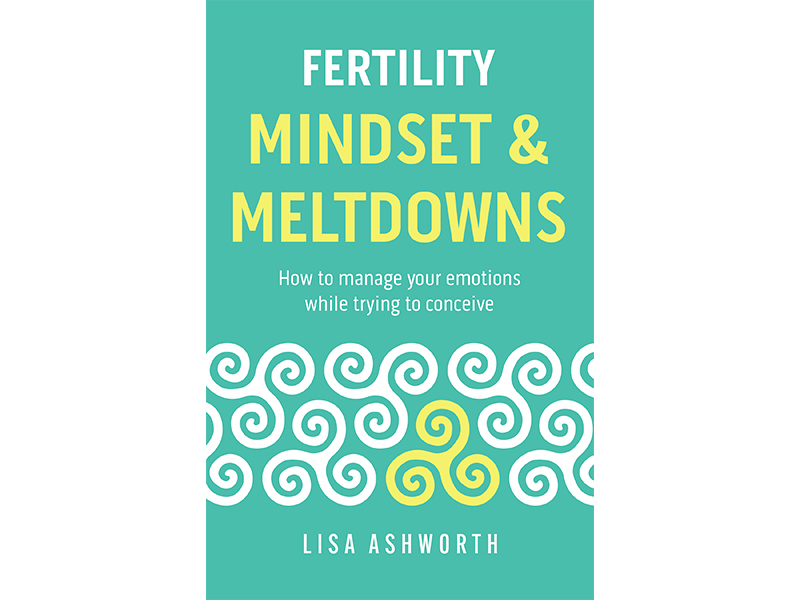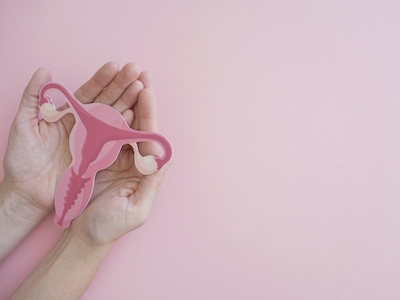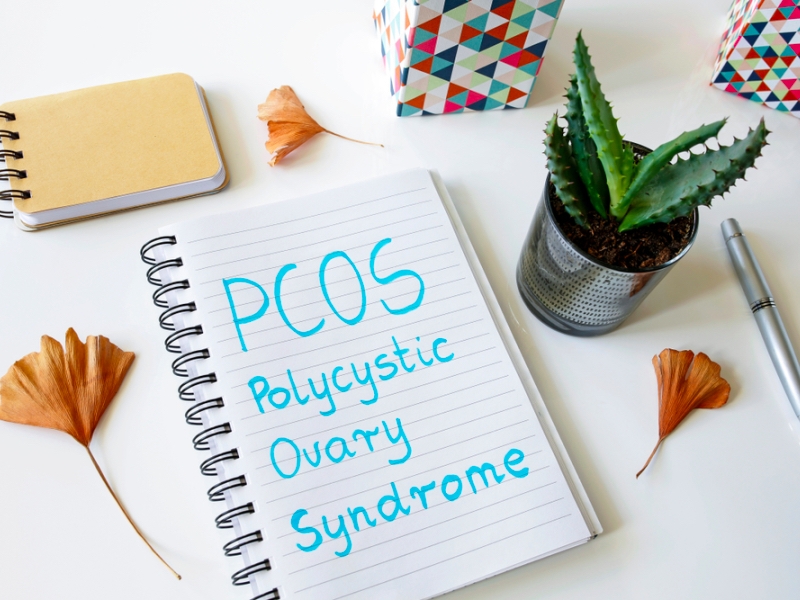 So what really is PCOS?
So what really is PCOS?
There is a lot of confusion over PCOS and I see many women who have received this diagnosis and are then in a complete spin. They have no idea what this means for them and for their fertility or what they can do to manage the condition. For many women a diagnosis of PCOS is both devastating and isolating.
Polycystic Ovary Syndrome can be divided in to two distinct groups – Polycystic Ovaries (PCO) and Polycystic Ovary Syndrome (PCOS). Like Women suffering from PCOS, women diagnosed with PCO will have many cysts on their ovaries. However they will not have the severity of cysts or the hormonal imbalance and symptoms seen in women with PCOS. Therefore women with PCO are less likely to have problems conceiving than women diagnosed with PCOS.
PCOS is a chronic condition where the ovaries develop many tiny cysts caused by the egg follicles that have not been able to develop as they should. PCOS is also accompanied by a hormonal imbalance, which in turn makes it more difficult for the eggs to mature adequately and be released at the time of ovulation. PCOS is unfortunately the cause of fertility problems in many women. This debilitating condition is often not diagnosed until a woman is unsuccessful in conceiving. It is however believed to effect between 5-10% of women in both the UK and US and I’m pretty convinced it’s on the increase!
What are the symptoms?
Symptoms may begin during a woman’s teenage years and early twenties. Symptoms may vary in severity but can include:
- Weight gain
- Acne
- Unwanted facial and body hair
- Thinning of hair or hair loss from scalp
- Depression and mood changes
- Irregular periods or no periods at all
- Irregular ovulation or no ovulation
- Reduced fertility
How can PCOS be treated?
Unfortunately, there is no current ‘cure’ for PCOS and therefore treatment is often aimed at managing the symptoms and optimising your fertility. However the good news is, that there are lots you can do to help yourself by making small changes to your diet and adopting a more healthy lifestyle.
Take back control of your fertility, get empowered and join me in The PCOS Lifestyle Challenge……….
Over the next month I want you to start changing your lifestyle. Don’t worry, it’s just small changes but changes that are going to make a HUGE difference to your PCOS symptoms, your overall health and your fertility.
I recommend you keep a PCOS diary for the next month so you can detail your changes and progress. You might want to start off recording your weight as part of your first diary entry and what you would have like to achieve by the end of the month.
So here goes, these are your challenges……
1. Get off the couch and get exercising
Probably the challenge you are dreading the most and I suspect hoped wouldn’t be included! Even if your tired (and PCOS makes you tired) you have to get off that couch and move. Find a type of exercise you enjoy and stick at it, it could be the gym, a zumba class, swimming or Yoga or you could try the NHS Couch to 5K podcast which gets you from couch to running 5K in 9 weeks (and YES it really does work!). You decide. Recruit a friend to become your ‘Get Fit Buddy’ and exercise together. Try to gradually increase your activity level each week and you will undoubtedly have more energy. Plus, you will notice a change in your body shape and weight loss.
2. Follow a gluten free diet
I want you to consider starting a Gluten Free Diet or reducing your carbohydrates down as much as possible. Gluten is in a lot of foods and can be difficult to eliminate from your diet totally, however if you do some research and try really hard you will soon be able to figure out what you can and can’t have. Log in your PCOS diary which foods with gluten you are able to tolerate and which you can’t, to see exactly how they affect you. Not all foods that contain gluten will affect you as negatively as others.
3. Reduce stress
Sometimes easier said than done! The adrenal glands react to stressful situations by releasing testosterone which is already at a high level if you suffer from PCOS. High levels of testosterone just upset your already disrupted hormone balance. However being aware of stress and getting to know your triggers to stress, is a great start to managing stress levels. Log when and why you are feeling stressed in your PCOS diary. Notice how you feel when you are stressed and what your body is doing. Are you clenching your teeth? Are your shoulders up around your ears? Are you struggling to sleep at night or waking early? These are all common signs of stress. Notice yours, so you can stop stress in its tracks. Prolonged stress is so harmful to the body and has a huge impact on fertility.
4. Loose weight
Once you start to exercise and eat a more healthy diet you will undoubtedly see notice some positive weight changes. However losing weight with PCOS is more of a challenge.
Did you know that fat cells produce estrogen? If you have too many fat cells hiding in your abdomen, bottom or thighs, you can end up with excess estrogen circulating through your body. Too much body fat can result in a disrupted menstrual cycle. So get on those scales and be honest with yourself. What weight do you feel your best at? Talk to your doctor about reaching a healthy body weight for your height. If you are over weight, as many women with PCOS tend to be, just losing 10 percent of your body weight could make a profound difference.
5. If you smoke – stop
It’s simple really, smoking affects your fertility. It ages your ovaries and increases the severity of your PCOS. Stopping smoking isn’t easy and can add to your already high stress levels, so don’t do it alone. See your doctor and get help.
6. Start a daily skin care routine
Many women with PCOS suffer from acne problems and oily skin. Find a good skin care routine and stick to it. If you can improve your skin you will also start to feel more confident.
7. Drink plenty of water
Drinking water flushes out impurities in your system and will do wonders for your skin too. Try and drink at least 6-8 glasses of water a day.
8. Ditch the alcohol
Or at least cut your alcohol right down. No more than 5 units (5 small glasses of wine) per week and less if you can. Avoid binge drinking at all costs. Binge drinking increases your insulin levels and is now believed to be a precursor for PCOS.
9. Take up a hobby
Making time to do something that you really enjoy has so many benefits. Not only does it get you active but it helps you to de-stress. When your life is dominated by PCOS it gives you the freedom to live in the here and now. Try something that you’ve always wanted to do or pick up an activity you enjoyed as a child and have left behind as an adult.
10. Get confident
As the month of your PCOS Lifestyle Challenge goes by and you start to feel healthier and maybe loose a little weight, you will begin to feel better about yourself and get back your old confidence. Remember, PCOS doesn’t define you. You are awesome. So go kick PCOS in to touch and make the most out of your life!
So, are you ready to start the PCOS Lifestyle Challenge?
Good luck
Kate x
Author Bio
 Kate Davies (RN, Bsc Hons, FP Cert) is a Fertility Practitioner, Fertility Coach and columnist, and the founder of Your Fertility Journey. Kate works with women and couples helping them achieve pregnancy naturally and coaches women to successfully navigate their fertility journey. Kate also teaches natural fertility methods to achieve pregnancy and to also use as natural contraception.
Kate Davies (RN, Bsc Hons, FP Cert) is a Fertility Practitioner, Fertility Coach and columnist, and the founder of Your Fertility Journey. Kate works with women and couples helping them achieve pregnancy naturally and coaches women to successfully navigate their fertility journey. Kate also teaches natural fertility methods to achieve pregnancy and to also use as natural contraception.
You can connect with Kate and find out more information about Kate and the services she offers here……
Website www.yourfertilityjourney.com
Facebook https://www.facebook.com/YourFertilityJourney?ref=hl
https://www.facebook.com/YourNaturalContraception?ref=hl
Twitter https://twitter.com/fertjourney








